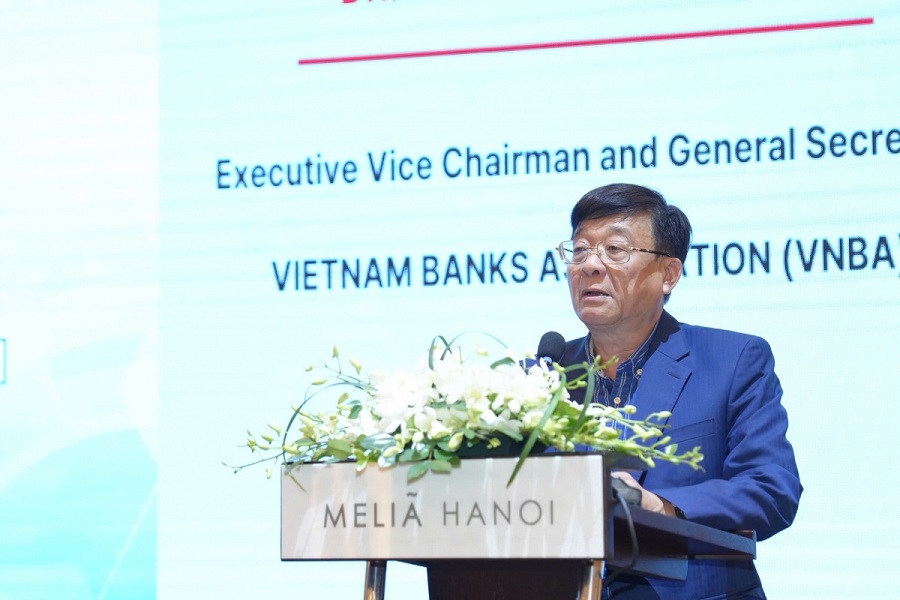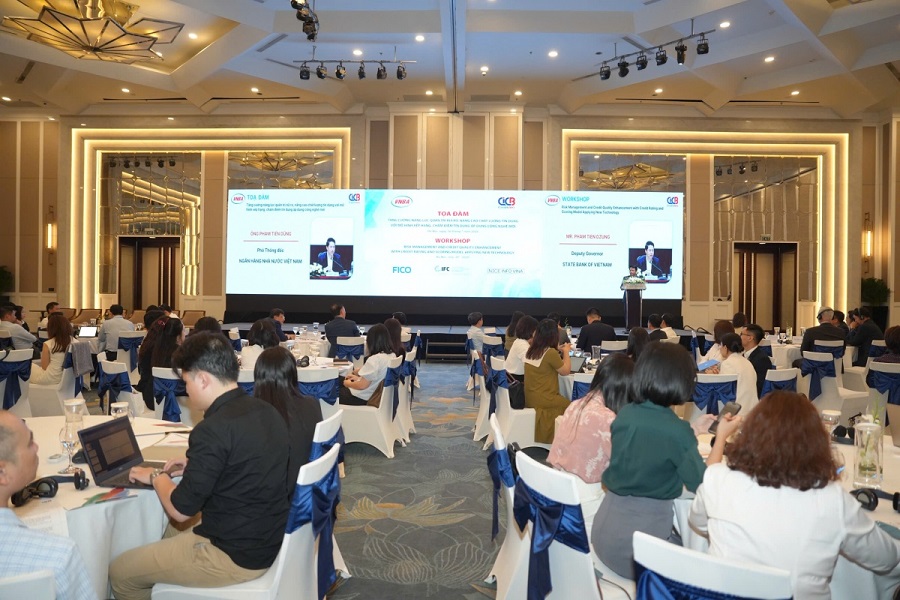On July 29, 2025, Vietnam Banks Association (VNBA), in collaboration with the Credit Information Center of Vietnam (CIC), organized a Workshop themed “Risk management and credit quality enhancement with credit rating and scoring model applying new technology”. Deputy Governor Pham Tien Dzung of the State Bank of Vietnam (SBV) attended and delivered a keynote speech at the Workshop.
Delivering an opening speech at the Workshop, Mr. Nguyen Quoc Hung, Executive Vice Chairman and General Secretary of the VNBA, assessed that, in the context of the economy experiencing a lot of fluctuations, ensuring the credit safety and improving the risk management efficiency are becoming critical factors in the operations of the credit institutions, especially the commercial banks. In addition, the strong development of technology - especially artificial intelligence (AI), machine learning, and big data analytics - is opening up new opportunities to optimize the credit scoring process, increase the accuracy of the risk assessment
According to Mr. Hung, the banking sector has made remarkable progress in applying advanced risk management tools, from building an internal credit rating system to implementing Basel II and Basel III standards. The SBV has also issued many important regulations related to the internal credit rating system, including Circular No. 31/2024/TT-NHNN dated June 30, 2024; Circular No. 14/2025/TT-NHNN dated June 30, 2025, etc.

Mr. Nguyen Quoc Hung, Executive Vice Chairman and General Secretary of the VNBA, speaks at the Workshop
Delivering his keynote speech, SBV Deputy Governor Pham Tien Dzung emphasized that Resolution 57 of the Politburo has identified that digital transformation is a breakthrough driving force for the socio-economic development in the new era. Accordingly, all organizations, individuals, and businesses have to prioritize digital transformation.
For the banking sector, digital transformation is not only to adapt to new technological trends, but also a mandatory solution to reduce costs and improve the operational efficiency, thereby reducing the lending interest rates and increasing the accessibility to banks’ capital for people and businesses.
Accordingly, over the past time, the banking sector has always attached high priority to digital transformation and cost reduction, thereby reducing the interest rates and improving the access to credit through online channels.

An overview of the Workshop
To implement online lending, according to the Deputy Governor, it is necessary to have online credit rating and scoring management. Therefore, the SBV has issued Circular No. 12/2024/TT-NHNN allowing online lending operations below the threshold of VND 100 million. The SBV leaders highly complimented that some banks, including VietinBank, MB, Vietcombank,... for having implemented online lending operations smoothly thanks to the early application of technological solutions such as eKYC, automatic credit scoring,...
Deputy Governor Pham Tien Dzung expressed his impression with the models of some international organizations, including FICO, the IFC, and especially NICE INFO (Korea), with technology platforms providing integrated solutions such as financial and behavior assessment, and non-financial data, etc., helping the banks to understand better their customers, improving the efficiency and accuracy in their credit decisions.
The SBV Deputy Governor emphasized the increasing importance of non-financial data in the credit granting. “In Indonesia, there is a lending model based on the customers’ persistence determined through their behaviors, including the number of steps taken per day or the frequency of phone use,… Vietnam can completely apply this model if it builds an appropriate data system and sharing mechanism,” said Deputy Governor Pham Tien Dzung.
The Deputy Governor asserted that, acting as a state regulatory agency, the SBV would continue to accompany the credit institutions in the process of digitizing their credit operations.
HT

